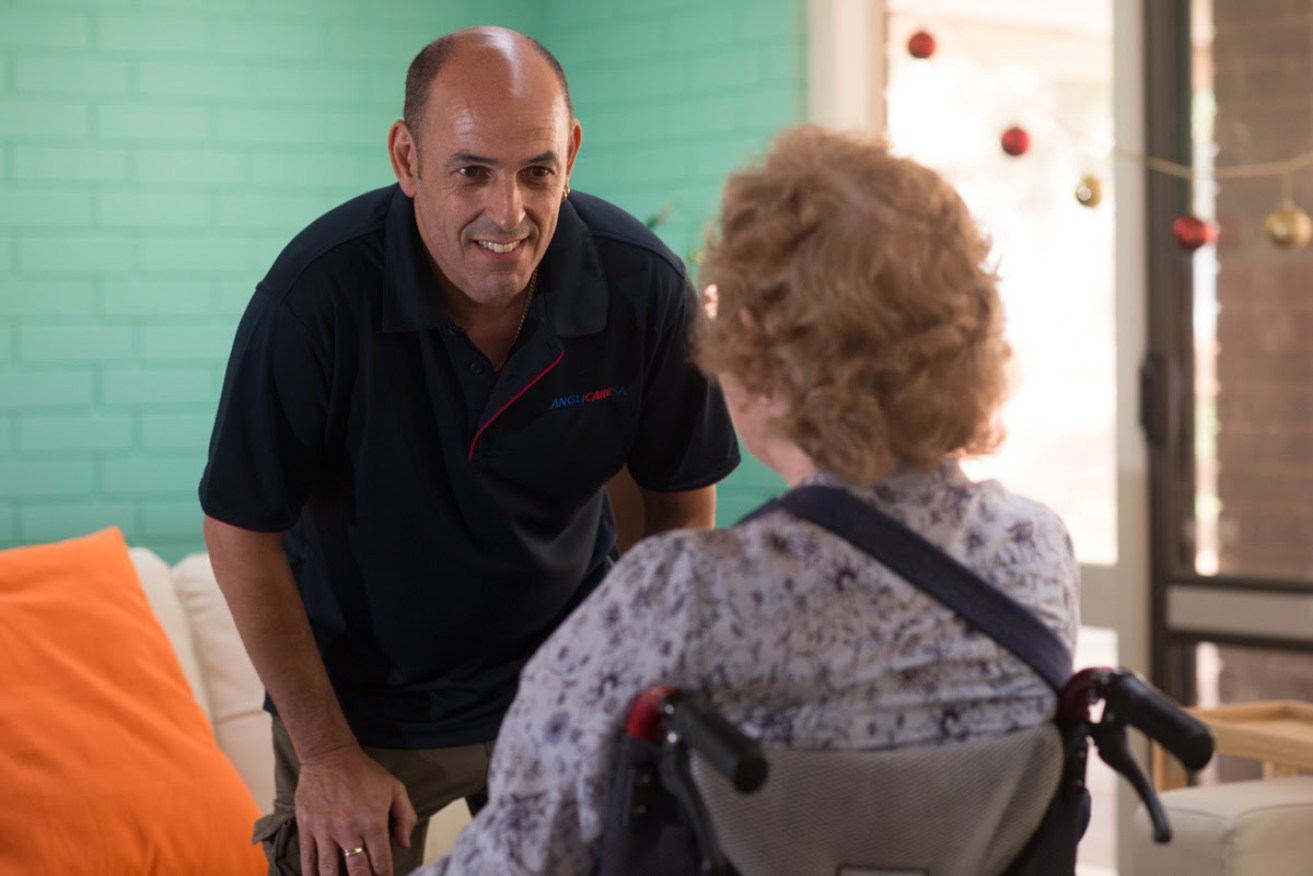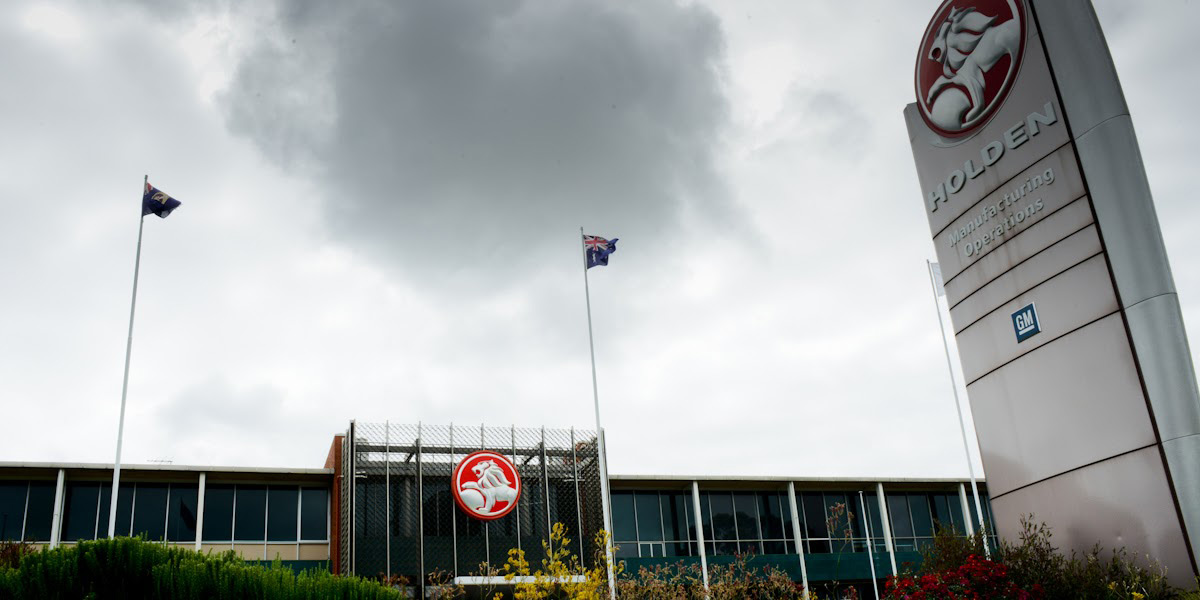‘Productive debt’ needed to avoid a jobless generation
A leading welfare agency has sounded an ominous warning about the jobs crisis in northern Adelaide, calling for the Government to favour investment over maintaining a budget surplus amid fears the economic downturn could cripple a generation of jobseekers.

Adris Salih found work as a carer, but fears for his former colleagues at Holden. Photo: Nat Rogers, InDaily.
AnglicareSA CEO Peter Sandeman, a board member of the State Government’s Automotive Transformation Taskforce, warns the Premier’s recent rhetoric about emerging industries such as health and aged care will not be the answer for many of the largely male workers displaced when Holden shuts its doors.
“Our rhetoric around Government from both sides has been much more [about] the sacred balanced budget and low debt,” he told InDaily.
“We’re now at a stage where wise investment in the future is required.”
This is not simply the closure of one particular company … we’re seeing the end of the industry
The Government’s “2015 Economic Statement”, published last month, painted a grim picture of the state’s employment prospects, which are exacerbated in the northern suburbs.
Its best-case scenario would still see the unemployment rate virtually unchanged over two years, but even that would require employment growth to almost double over the same period.
The Government’s own prediction is for unemployment to rise to 8.2 per cent within two years.
Responding to the report, Sandeman – who oversaw the Government-partnered Office of the North for five years to 2007 – said grimly: “I’d dearly hope that the Government is correct on those assumptions”.
“But it will need to make the kind of infrastructure investment to attract industry,” he said.
“At the end of the day, we need productive state debt [and] we’ve shied away from that kind of investment.”
He said SA would bear the brunt of “not simply the closure of one particular company … we’re seeing the end of the industry”.
“It’s Toyota, Ford, Holden disappearing, something we haven’t experienced before.
“The nearest experience we have to draw upon was the Tonsley experience.”
When Mitsubishi closed its southern operations, Sandeman said, one third of the workforce went on to find other jobs, another third “worked again but not at the same capacity [and] one third never worked again”.
When communities don’t see a future for themselves and their children, you unleash social issues that can swamp social welfare organisations
“That’s a huge legacy … I’m more concerned for the next generation coming through, who now just simply see no future for themselves in employment. I’m worried about those coming into adulthood over the next 10 years – I believe the dip in our economy may last that length of time.”
Sandeman concedes “it certainly is true the health, aged-care and disability sectors are areas of growth”.
“But they’re clearly not large enough to soak up the displaced population of workers from the advanced manufacturing industry, unfortunately,” he said.
“For some men coming out of production lines, it’s an opportunity to develop a very different part of themselves – to explore the kind of caring role perhaps they have as fathers, and extend that looking after other people – people with a disability or old people.
“But that’s a relatively small proportion of workers, and it’s a difficult transition; it’s a large transition for them to make … people are going from working with things to working with people, and from a very male environment perhaps to a very female environment.
“It can be a great transition to unleash something inside them that’s perhaps been developing, but that’s not for everyone; there’s quite a large cultural shift required, and the pay rates are less in the human services area than for a frontline worker in Holden.”
If people just think they’ll walk into more factory work, they’re in for a shock. There’s nothing out here anymore
One Holden worker who has made the transition successfully is Adris Salih, who now works as a carer for Sandeman’s organisation, AnglicareSA.
“I loved Holden, it was a good place to work,” Salih reflected.
After 25 years though, he took a redundancy back in May, deciding: “I wanted to do something different – I didn’t want to do factory work any more.”
He took four months to gain qualifications but “I really enjoy it now”.
“I’m doing care work, work in the community, anything from personal care, showers, transportation, domestic work – all different types of work, every day,” he said.
“It works really well and I really enjoy it – I’m surprised how much I enjoy it.”
But Salih, too, concedes: “I don’t think it’s for everybody”.
“A lot of people get put off; they think it’s all wiping bums and that sort of thing, [but] it’s a good industry to get into … I really enjoy meeting different people all the time. I get on really well with people.”
Salih wanted to “get out early” – “I didn’t want to get out with the other 2-3000 people unemployed all fighting for jobs” – but fears for his former colleagues over the years ahead.
“There’s going to be a lot of people unemployed, you know … if people just think they’ll walk into more factory work in two years, I think they’re in for a shock. There’s nothing out here any more.”
Sandeman argues what’s required is “a concerted effort between all of us – government, industry and social services – to really work together leveraging the state’s assets, providing social and economic infrastructure which attracts investment into a stable, well-educated workforce”.
“As a start, we need to be making things other people want to buy,” he said.
“There’s a great deal of value in the economy [of] looking after people, a great deal of value in the hospitality industry, but at the end of the day the state also needs to make things or grow things people want to buy.”
Despite a glut of manufacturing companies seeking to diversify, he said they needed “key bits of infrastructure that allow companies to cluster”, like Techport as a defence-building hub.
“It’s not just physical infrastructure – it can also be educational and training infrastructure,” he said.
“Educational infrastructure enables the kids in the northern suburbs to stay in school and see a future by having group training arrangements with remaining industries.”
He warned against the lure of “picking winners”, identifying particular industries or companies into which to pour Government funds.
“It’s more about knowing the types of infrastructure we want to bring and where our advantage might lie … picking areas of opportunity, rather than individual winners,” he said.
He renewed calls for the Federal Government to “reinvest” money that would have once gone to Holden.
“That would provide at least an initial down-payment of some substance, to see if we can build economic, educational and social infrastructure that will be attractive to international investors,” he said.
“We know there’s going to be a downturn in SA that will impact on our community; that’s large enough, I hope, to enable us to overcome some of our traditional conservatism (about) getting behind some key projects.”
The Weatherill Government will shortly outline its Northern economic plan, which Sandeman hopes will provide some sort of roadmap to navigate a rocky road ahead.
“We do have to work to provide some hope for the future, because when communities don’t see a future for themselves and their children you unleash the kind of social issues that can swamp organisations like Anglicare.
“So by having a positive, practical plan that at least provides some reason for kids to stay in school and industry to work together, that will at least give us a fighting chance of a better future.”





